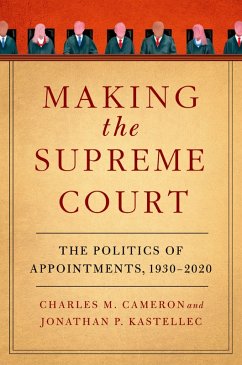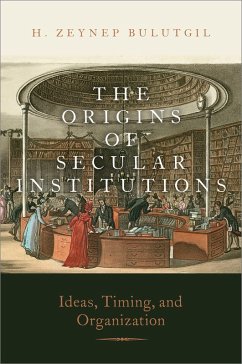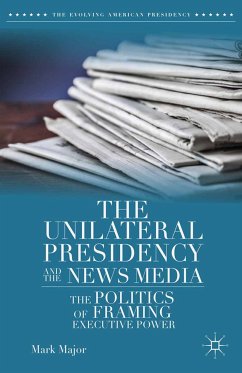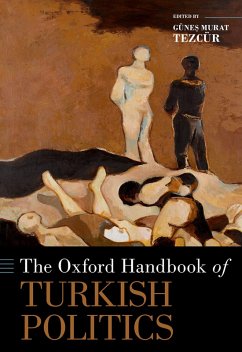
The Isolated Presidency (eBook, PDF)
Versandkostenfrei!
Sofort per Download lieferbar
37,95 €
inkl. MwSt.
Weitere Ausgaben:

PAYBACK Punkte
19 °P sammeln!
Since before the ratification of the Constitution, students, scholars, and statesmen in American politics have grappled with an important question: how powerful is the President of the United States? For many scholars, it is a question that can be answered only by considering factors outside the office itself, such as the president's popularity, personal clout, political talents, or institutional relationships. In The Isolated Presidency, Jordan T. Cash re-frames this question to instead ask what authority is available to all presidents. Drawing on the Constitution itself, Cash argues that the...
Since before the ratification of the Constitution, students, scholars, and statesmen in American politics have grappled with an important question: how powerful is the President of the United States? For many scholars, it is a question that can be answered only by considering factors outside the office itself, such as the president's popularity, personal clout, political talents, or institutional relationships. In The Isolated Presidency, Jordan T. Cash re-frames this question to instead ask what authority is available to all presidents. Drawing on the Constitution itself, Cash argues that the presidency possesses an internal logic derived from its structure, duties, and powers which not only grants the president a unique institutional perspective, but also provides the president with considerable agency and discretion in pursuing agendas. To gain a clear view of how the Constitution creates a baseline of authority that is available to all presidents, Cash examines the "isolated presidents"--presidents who were unelected, faced divided government, and were opposed by major factions of their own political parties. Stripped of all external supports, these presidents were left with nothing but their constitutional authority to rely on. Yet despite their disadvantageous circumstances, these presidents were able to achieve major policy successes solely by use of their constitutional powers. Through three case studies of isolated presidents, Cash illustrates how the Constitution creates an empowering logic within the presidency which orients presidential behavior and grants every president significant power and agency. As American politics remains polarized and divided, The Isolated Presidency provides lessons and examples of what constitutionally derived actions a president can take when confronted with the recurring issues of divided government and political gridlock.
Dieser Download kann aus rechtlichen Gründen nur mit Rechnungsadresse in A, B, BG, CY, CZ, D, DK, EW, E, FIN, F, GR, HR, H, IRL, I, LT, L, LR, M, NL, PL, P, R, S, SLO, SK ausgeliefert werden.













